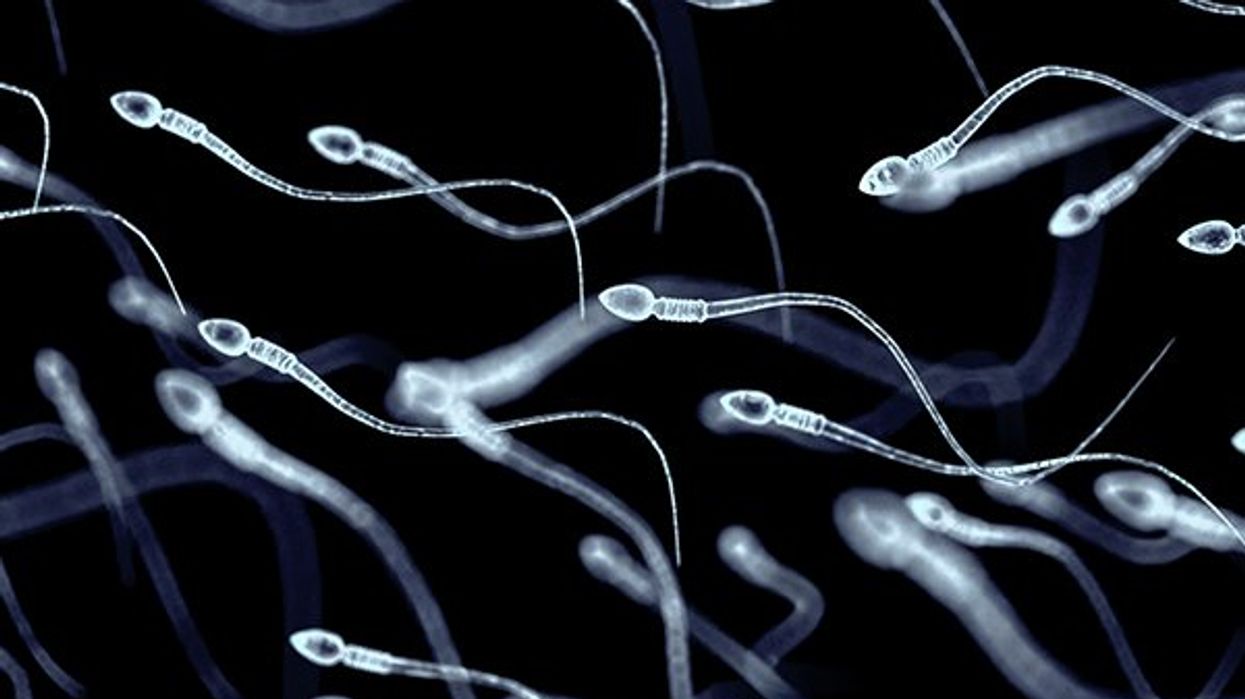
Image source: U.S. Dept. of Health and Human Services/National Institutes of Health

Washington State University researchers have discovered a gene that could lead to a reversible, non-hormonal contraceptive for men that works, in part, by warping the shape of sperm.
"You don’t want to wipe out the ability to ever make sperm — just stop the sperm that are being made from being made correctly," said researcher Jon Oatley, a professor at WSU's School of Molecular Biosciences.
"Then, in theory, you could remove the drug and the sperm would start being built normally again," he added.
When disabled, researchers say expression of a gene called Arrdc5 created infertility in mice by impacting the rodents' sperm count, movement, and shape. They published their findings Monday in the open-access, multidisciplinary journal Nature Communications.
The same gene present in mice is also present in humans. Crucially, the Arrdc5 gene is specific to testicular tissue, WSU's researchers report.
Lack of the gene causes oligoasthenoteratospermia, the most common diagnosis for male infertility in humans. Men with the condition have an overall decrease in sperm production, lowed sperm mobility, and a "distorted" sperm shape that prevents fusion with a woman's egg.
Oatley and Mariana Giassetti, the study's first author, have filed a provisional patent for developing a male contraceptive drug for humans that would work by disrupting a protein encoded by the gene.
The researchers say this disruption would not require interfering with testosterone, which could impact bone mass, muscle strength, and red blood cell production.
Other uses for a yet-to-be-developed drug based on these concepts involve animals, since the gene is found across mammalian species. It could, for example, potentially be used in lieu of castrating livestock or as a means for limiting overpopulation of wildlife species.
"Developing a way to curb population growth and stop unwanted pregnancies is really important for the future of the human race," Oatley said.
"Right now, we don’t really have anything on the male side for contraception other than surgery and only a small percentage of men choose vasectomies. If we can develop this discovery into a solution for contraception, it could have far-ranging impacts."
WSU's study was supported by a grant from the National Institute of Health's Eunice Kennedy Shriver National Institute of Child Health and Human Development.
Like Blaze News? Bypass the censors, sign up for our newsletters, and get stories like this direct to your inbox. Sign up here!